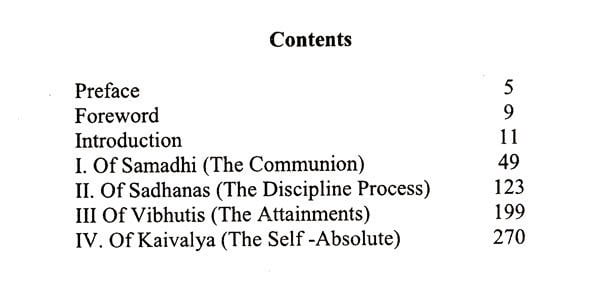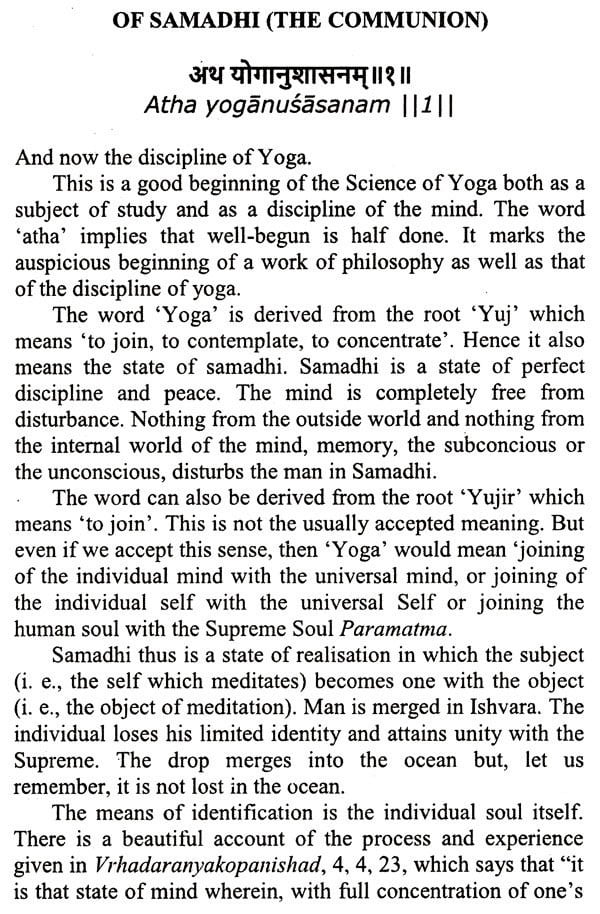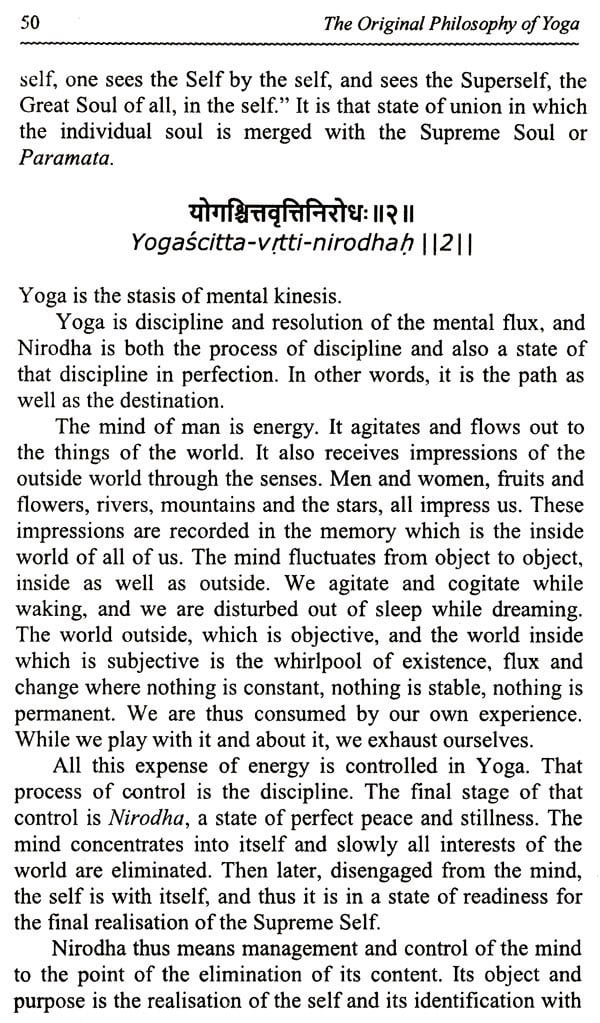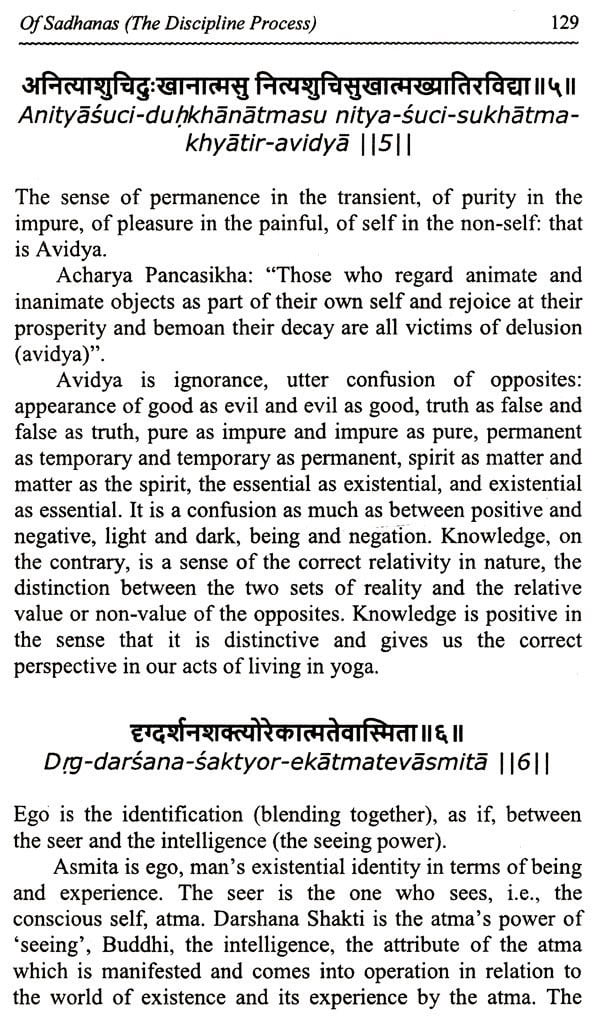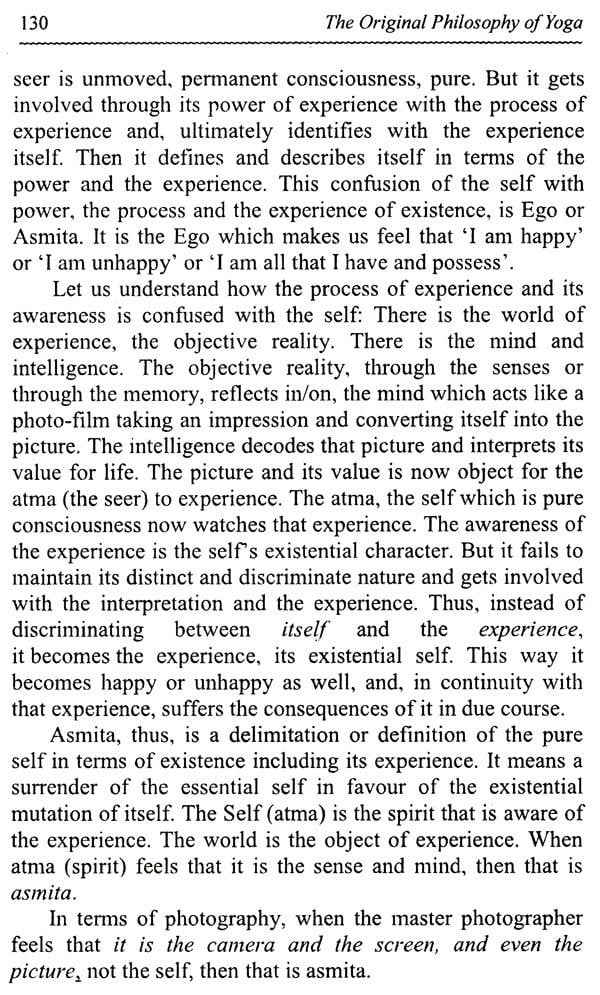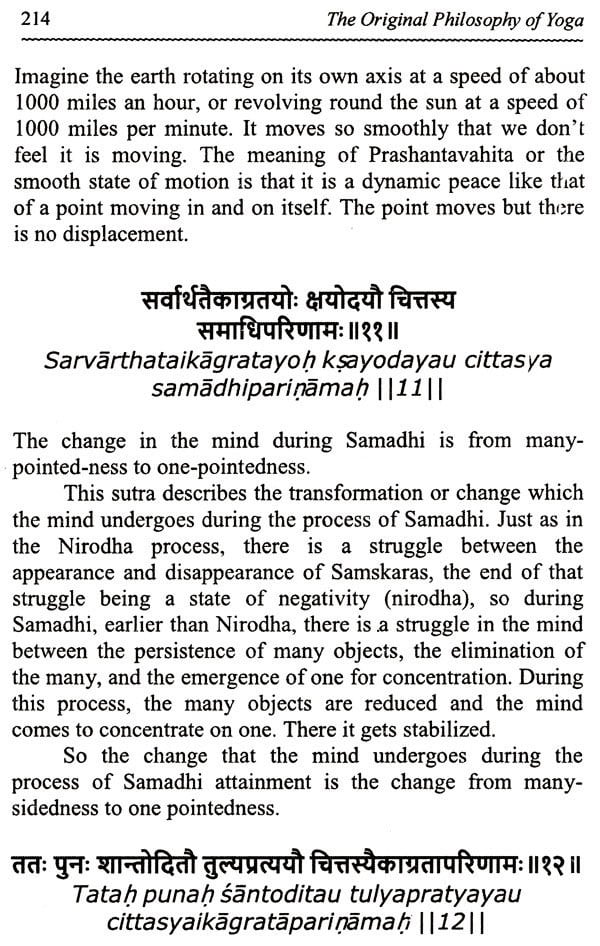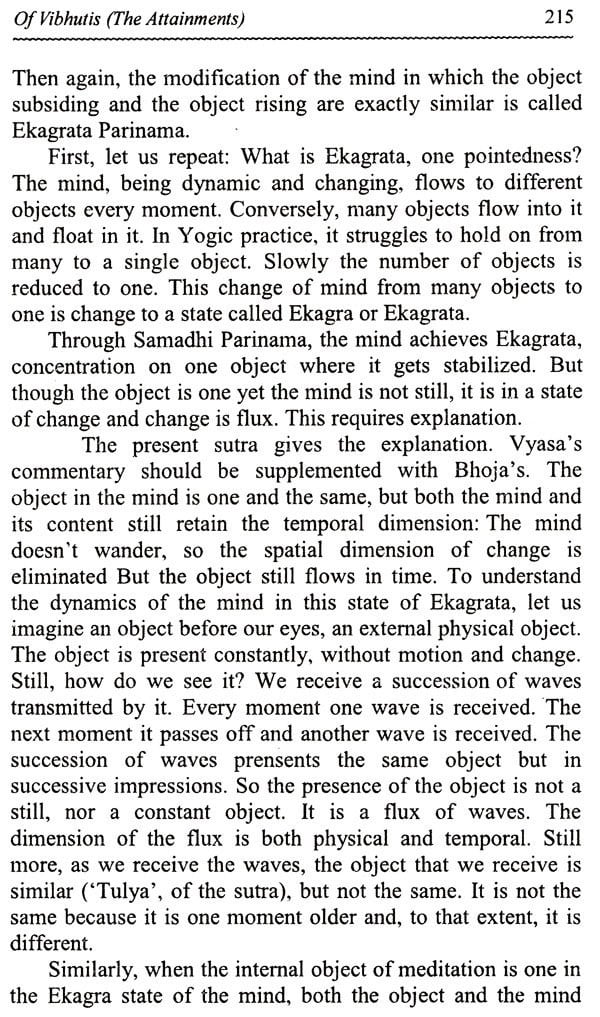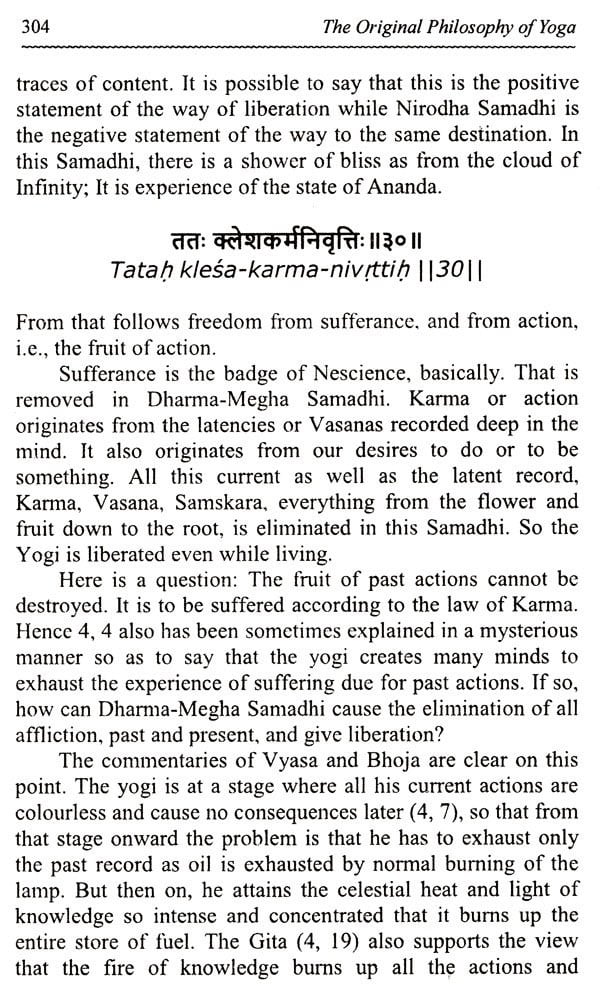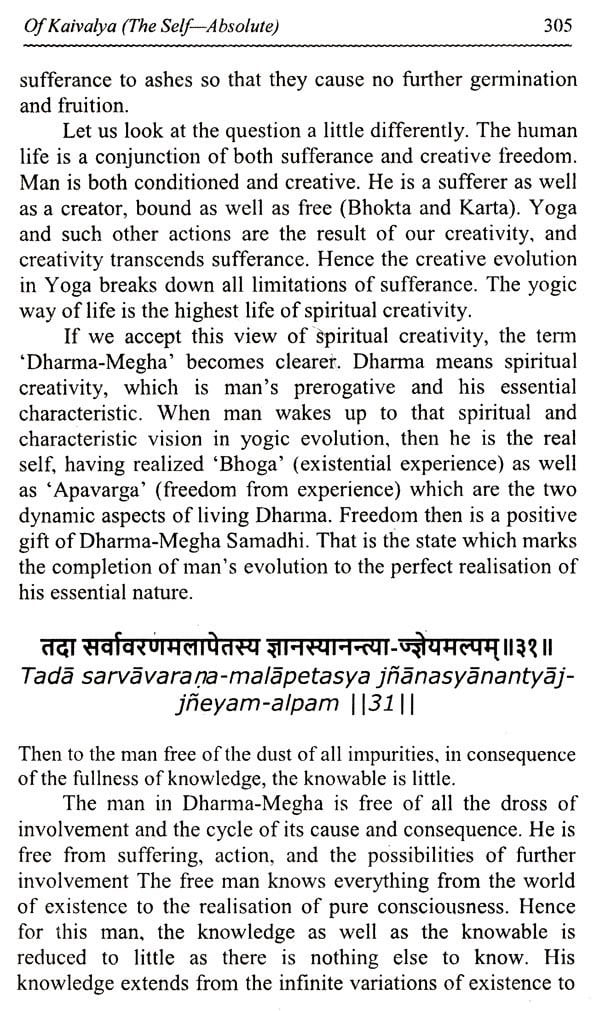
The Original Philosophy of Yoga (The Yogasutras of Patanjali)
Book Specification
| Item Code: | UAC162 |
| Author: | Tulsi Ram Sharma |
| Publisher: | Govindram Hasanand |
| Language: | English |
| Edition: | 2018 |
| ISBN: | 9788170772521 |
| Pages: | 310 |
| Cover: | PAPERBACK |
| Other Details | 9.00 X 6.00 Inches |
| Weight | 350 gm |
Book Description
This book is meant for an average English-knowing reader, although it may also be used by those who chiefly depend on literal translations of the text and commentaries. The real meaning of an ancient text may not be available through a literal translation without reference to the substantial content of the language. In the present work an attempt has been made to explain the substantial content in the scientific milieu in the current idiom of the English language. No claim to an exhaustive explanation of the meaning but an attempt has been made to present the content in a simple and clear style as far as possible. Therefore a reader, I believe, will surely feel what yoga philosophy is like-if not what exactly it is-and if he feels that, I shall have been amply rewarded for this labour of love.
It is rarely possible to-day for anyone to claim that he can fully understand and explain the yoga philosophy of Patanjali, first because of the nature of this ancient knowledge and secondly for reasons of the language.
Ancient Indian philosophy, specially Yoga, is Darshan which means vision, a direct experience of the Reality and, simultaneously, a transmutation of the personality in tune with the vision. The medium of the vision may be thought, to begin with, or imagination, but finally it is the soul itself which, in a state of communion with the Reality, becomes one with it. The philosophic state then is a recreation, reflection in contemplation, of the state of Being wherein the subject, the object, and the experience (knowledge) all three merge into one. When the philosopher emerges from that experience, then, with his memory and imagination, he recaptures and reconstructs that experience from the impress which his soul still bears. This memory and imagination, too, is not the ordinary existential memory and imagination, it is the trans-logical, Ritambhara Prajna, the highest intelligence of which the human mind is capable. Logic and reason has a place but it has the power only to apprehend and not to comprehend the experience.
Besides the limitations of logic and reason, we suffer from historical limitations of communication. The original language of the Yogasutras is the nearest possible approximation to the philosophic vision, but we cannot now be sure of our understanding of that language and much less of the approximation of that language to the vision. Indeed, we cannot even be sure whether our language to-day can translate the original Sanskrit expression. A claim to the original vision would be fantastic, even a claim to the original language would be presumptuous. Still what I do claim is an intellectual and sentimental commitment to the vision and to the language of the philosophy. Hence whatever is presented here is the fruit of that commitment and its meditative expression in English.
Yoga philosophy presents a holistic programme of intelligent and full systemic living. Yoga is a complete discipline of a conscious evolution of the self from the state of existence to the vision of the essence and union with the Infinite source and spirit of the universe. Maharshi Patanjali takes the Sankhya and other Darshanas as his basis and constructs a prabtical programme of personal and transpersonal realization of truth and freedom.
History of Yoga goes back to Rigveda in history even to Indus Valley period as we find a relic, depicting a person sitting in yogic posture under a Peepal tree.
The term, Yoga is derived from the Sanskrit verbal root 'yuj' to unite, to concentrate in order to achieve the desired end.
The Upanishads use yoga, a discipline of concentration through which one can observe and experience the Ultimate in and through all its manifestations fully glued to them.
Yoga, in fact, stands for the unity of practiser, the method, and the end to be achieved. It is, in fact the (triputy), the trijunction of yogi, yoga and yogya (the end to be achieved).
A systematic philosophy of Yoga by Patanjali of 4th century B.C. is available. It preaches eightfold yoga.
The Bhagavadgita, a succeeding work, happens to elaborate its aspects further. The eighteen chapters through diverse names promote the idea that there is no end to the aspects of yoga.
The name of the first chapter as vishada yoga, the torments, is said to be an aspect of yoga as an agitated mind struggles to get out of it. Hence, it yearns for a method ( 2, 7), so it is also an aspect of yoga.
In fact, with the addition of years and experience, the depth of realization increases. The knowledge has no boundaries and confinements. Hence, with the advancement of knowledge we go deeper and deeper and subsequently we cannot limit the aspects of anything. For, the culmination of everything is Infinity and indescribability.
Dr. Tulsi Ram Sharma, my reverend preceptor has already risen to this state of mind. He is a master yogin who knows fully well how to lead a beginner through gradual stages to make him master of yoga.
In this book of Yoga, he adopts a style to elaborate the subject matter, he mastered during the long tenure of practice, teaching and writing.
Through his arduous practical experience, he has successfully established in his book:" Yoga is quashing of differences and restoration of Unity."
Book's Contents and Sample Pages
